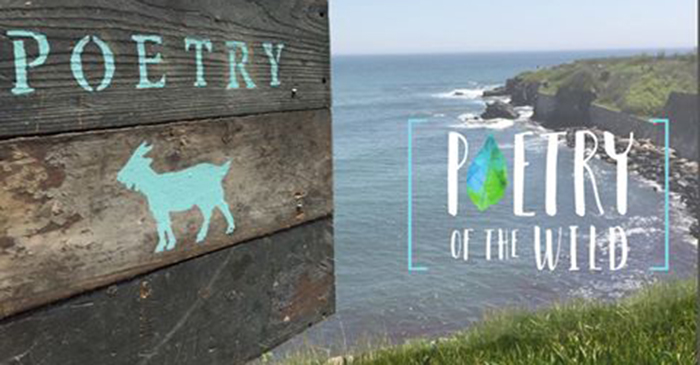
Community members who created public installations featuring their art and poetry are featured at numerous locations on Aquidneck Island as part of the “Poetry of the Wild” exhibition, which runs through Aug. 6.
Ana Flores, ecological artist, sculptor and founder of Poetry of the Wild, says the project connects people to the landscape by combining poetry, visual art and the natural world. It is supported by Salve Regina with help from additional community partners.
Flores – who runs Earth Inform Studio – has been bringing Poetry of the Wild to locations both public and wild for the last 12 years. Each installation features a box or sculpture, built by artists and community members using recycled materials, that contains an original or classic poem as well as a journal for passersby to contribute reflections of their own. Each unique site reflects the spirit of each place.
Jen McClanaghan, assistant professor and writer-in-residence at Salve Regina, and her class took on a leading role in organizing Poetry of the Wild in Newport, engaging with Flores and local artists to encourage submissions.
Installations are featured at more than a dozen sites throughout the island, including Eisenhower Park, Redwood Library, Aquidneck Land Trust, FabLab, the Met School, Community Garden at Quaker Meeting House, the Cliff Walk, Ballard Park, the Salve Regina campus and more.
The University’s engagement in Poetry of the Wild is one example of the type of community collaborations being spearheaded by Salve Regina faculty as part of a $173,800 grant from the Davis Educational Foundation to intentionally infuse community engagement and civic learning into the curriculum.
The courses developed by faculty in each of the three years of the grant are built around a significant project developed in conjunction with partners that will fulfill a demonstrated community need and allow students to apply concepts and skills they learn in class. Regardless of discipline, students will be engaging with literature, practice, and reflection on justice, fairness, and social change in relation to their subject matter and their community project.

